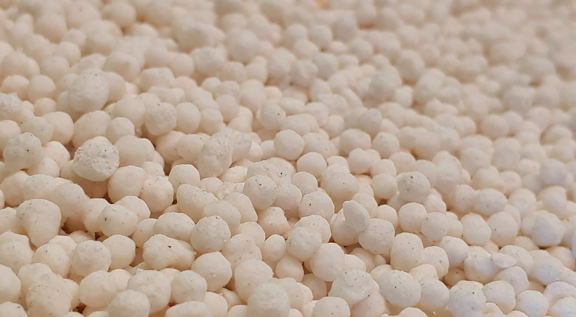
Image: Pixabay
According to agronomist and market analyst Cristiano Palavro, what rose the most this year is nitrogen. “Urea accumulates, in 2021, an average high of 234%, with a more aggressive movement observed from the end of August until now”, he points out. According to him, several factors impacted the rise in fertilizers, such as fuel and energy prices in general, coupled with systemic and specific logistical problems.
“Today the main concerns revolve around the restriction of exports from China, which should mainly affect the phosphate and nitrogen markets”, he warns. The expert explains that this occurs due to the difficulty of supply in the country and the prioritization of domestic supply to the detriment of exports.
There are also geopolitical problems affecting other countries and the market, as is the case with trade restrictions in Belarus that directly affect the supply of potash.
Crisis in the countryside
President Jair Bolsonaro mentioned, last week, that Brazil could suffer a food shortage in 2022 due to the lack of fertilizers caused by the decrease in Chinese manufacturing. The declaration took place during the ceremony to modernize occupational health and safety standards, at Palácio do Planalto.
“I will warn you a year in advance: fertilizers. Due to the energy crisis, China is starting to produce less fertilizer. The price has already increased, it will increase more and there will be shortages. For every five dishes of food in the world, one leaves Brazil. We are going to have supply problems next year,” he says.
On the October 12th holiday, Bolsonaro was in Guarujá to rest with his family. During a tour of the city, he was welcomed by supporters and once again mentioned the fertilizer crisis. “We have problems ahead. I'm telling you about the fertilizer crisis”, he declared.
According to the president's speech, during a meeting with the parliamentary agriculture front, the crisis was discussed and the Special Secretary for Strategic Affairs presented the National Fertilizer Plan, which has been discussed since April.
As an option for rural producers, Bolsonaro cited stone powder or rock powder, which is a national product and is among the main options to replace potassium. The Plan seeks to strengthen policies to increase the competitiveness of production and distribution of inputs and technologies for fertilizers in the country in a sustainable way.
In practice, with the preparation of the National Fertilizer Plan, the Federal Government wants to reduce external dependence and increase the competitiveness of Brazilian agribusiness in the international market.
National data, released by the federal government's Foreign Trade Secretariat, indicates that, considering all types of fertilizers, 24 million tons arrived in the country from January to August, 17% more than in the same period in 2020.
Difference between chemical fertilizers and rock powders
According to the master in agronomy and specialist in soil fertility, Saulo Brockes, the main difference between chemical fertilizers and rock powders is solubility. Chemical fertilizers are soluble salts and fertilize the plant for a limited time, only while it is available in the soil. These products are limited, as they are lost through evaporation and leaching, where the roots no longer have access.
When leached, these salts cause contamination of effluents and intoxication of water, which generates environmental impact. “The consequence of the irrational use of chemical and soluble fertilizers is the salinization of the soil and the loss, which can also be due to volatilization in addition to leaching”, as explains Saulo, who is also the technical coordinator of Tratto FMX.
Rock powders are the opposite of chemical fertilizers, as they are insoluble, that is, they are not lost through leaching or volatilization, they do not salinize or degrade the soil and the environment. Rock powders are insoluble, but bio-available, they nourish and make nutrition available to plants according to the bio-demand of the planted crop.
In Brazil, there are several rocks used for agriculture, such as Fino de Micaschisto (FMX), phosphate rock and limestone, which is used for correction, but is also a source of calcium and magnesium. FMX, for example, can make nutrition available to plants for up to a year, in addition to regenerating the soil, restoring balance to the environment and conditioning the soil to improve nutritional efficiency.
These rock powders are sold on the Brazilian market between R$ 100.00 and R$ 500.00 per ton. If compared with the same amount of potassium chloride, the value does not reach 5% of the imported fertilizer. “The rural producer is free to do the math and see what the savings will be at the end of production”, points out the master in agronomy.
Source: Notícias Agrícolas












